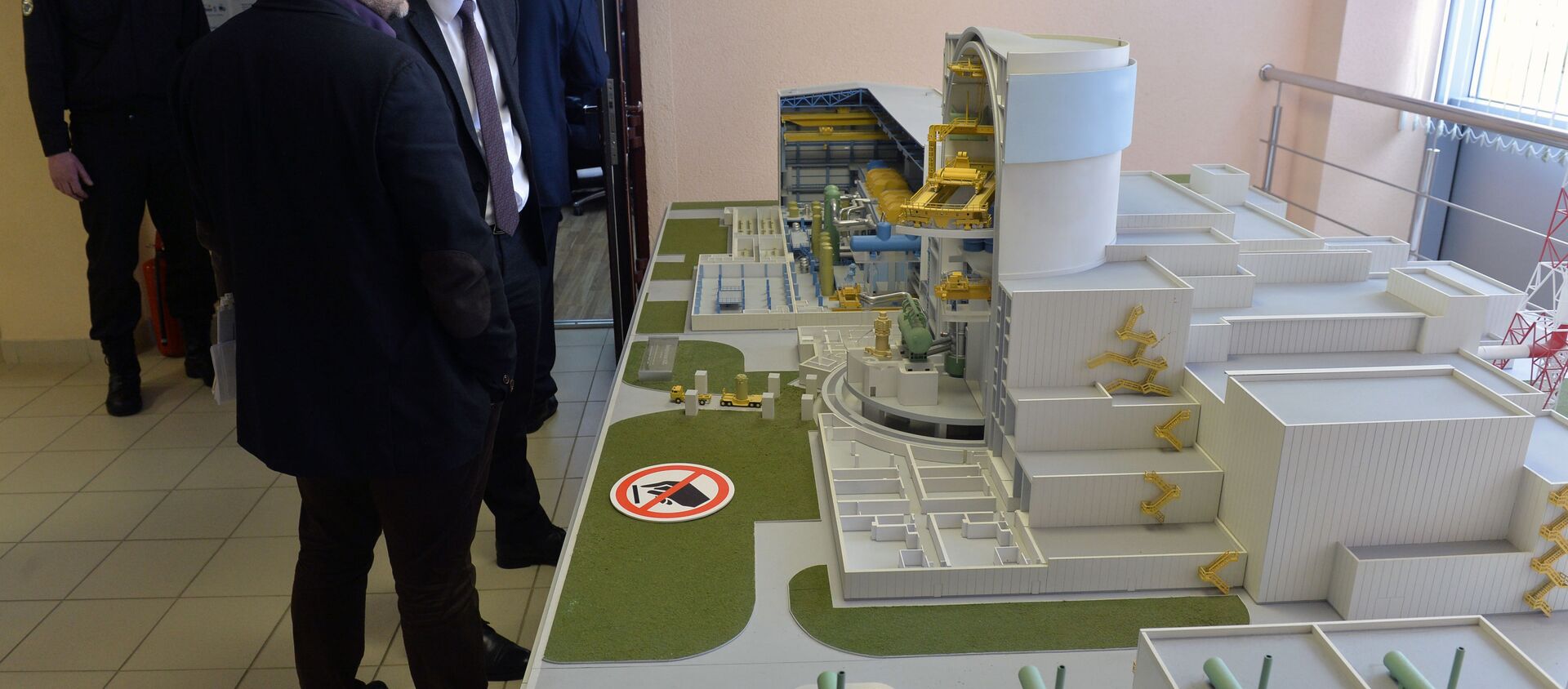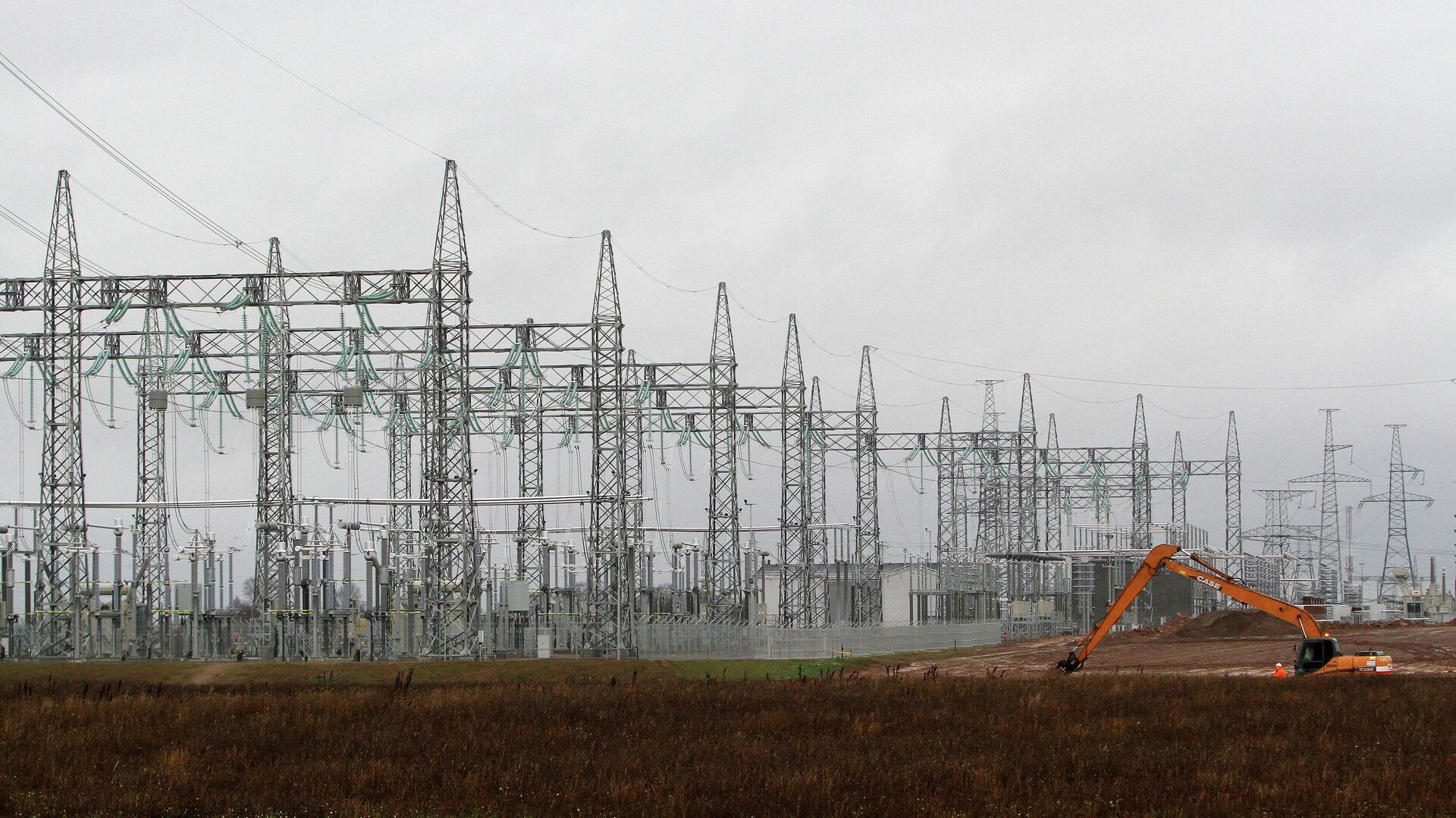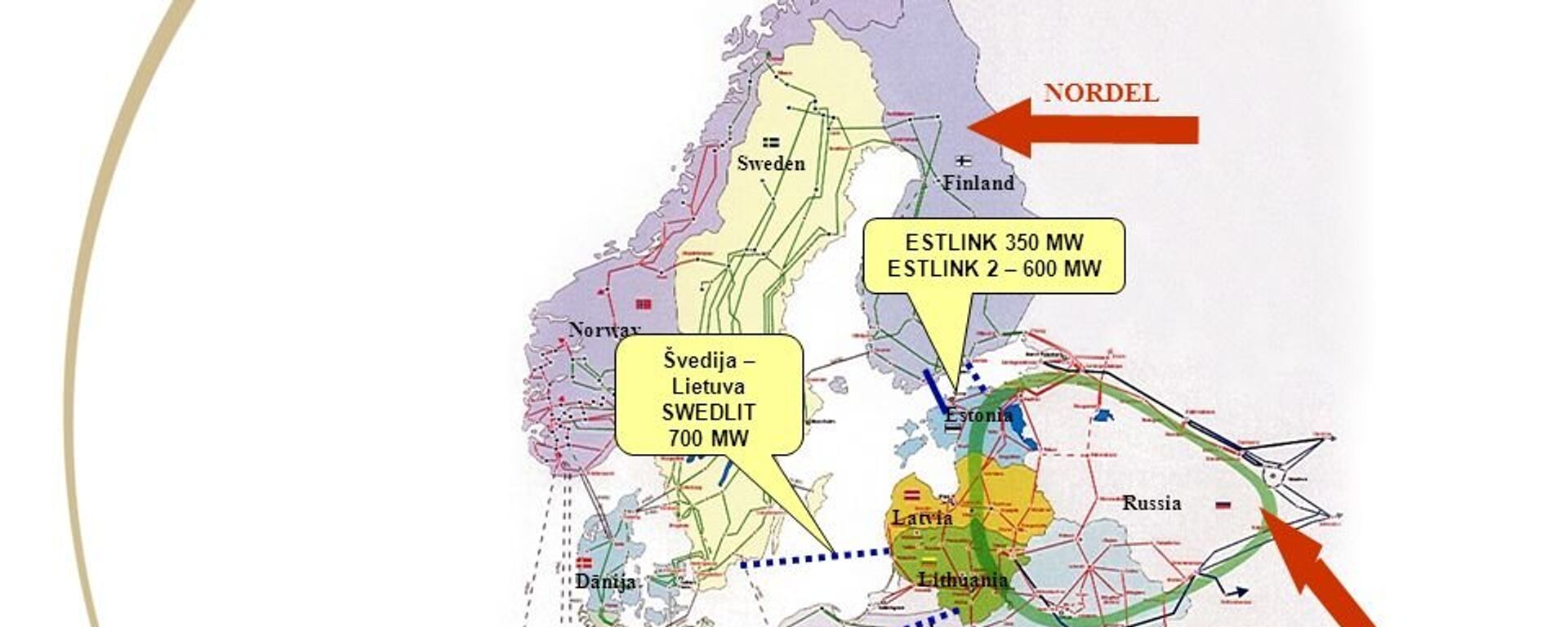https://sputnikglobe.com/20211208/baltics-to-completely-disconnect-from-russian-power-grid-by-2025-lithuanian-energy-minister-says-1091349856.html
Baltics to Completely Disconnect From Russian Power Grid by 2025, Lithuanian Energy Minister Says
Baltics to Completely Disconnect From Russian Power Grid by 2025, Lithuanian Energy Minister Says
Sputnik International
The region remains connected to the Soviet-era grid despite repeated pledges by officials to connect to the European Union's power grid instead.
2021-12-08T11:58+0000
2021-12-08T11:58+0000
2021-12-08T12:29+0000
lithuania
russia
electricity
power grid
baltic states
https://cdn1.img.sputnikglobe.com/img/07e5/0c/08/1091349508_0:60:3535:2048_1920x0_80_0_0_2ede0a0e23eaf1d5d1cf2eb95a62befa.jpg
Lithuania and other Baltic states are on track toward completely decoupling themselves from Russia’s electricity grid by 2025, energy minister Dainius Kreivys has announced.Speaking at a press conference Wednesday and discussing a test that took place Saturday in which Lithuanian electricity transmission system operator Litgrid successfully connected to Polish operator Polskie Sieci Elektroenergetyczne (PSE) and began operating in sync with the European Continental grid, Kreivys said that the test demonstrated the Baltic grid’s capabilities.Commenting on the test, Litgrid CEO Rokas Masiulis suggested that “it can be said that on Sunday the three Baltic countries woke up more safe than when they went to bed on Saturday evening.”Like its neighbours, Latvia and Estonia, Lithuania receives electricity via BRELL – a massive ring-shaped electrical power network whose technical capacity was built during the Soviet period which also includes Belarus and Russia, and operating in a uniform frequency of 50 GHz. The Baltic countries formally announced that they would exit BRELL in 2018, with a ‘roadmap’ on desynchronization with Russia’s grid and plans to connect to the European grid reached that same year. These efforts include a one billion euro project to synchronise the energy networks of Lithuania and Poland.The Baltics’ decision followed the commissioning of a fear-mongering report by NATO in early 2017 warning about the risks allegedly associated with the Baltic countries’ continued dependence on Russian electricity supplies.Russia has expressed regret over the Baltics’ decision to exit the BRELL network, but indicated in 2019 that Moscow would be prepared to continue working in the ring until 2025 on previously agreed-upon terms. Russia is also preparing for the disconnect by creating an independent power supply system for Kaliningrad, the Russian exclave wedged between Poland, Lithuania and the Baltic Sea, allowing it to operate independently of the Unified Energy System of Russia. Kaliningrad has built a number of thermal power plants to power the region, with field testing of the system in isolated mode successfully completed in September.In addition to its plans to isolate itself from the Russian electricity grid, Lithuania has also been the main Baltic opponent of the Belarusian nuclear power plant, built with Russia’s help, and has lobbied for the ban of the import of Belarusian electricity into the European Union. In September, Litgrid unilaterally limited the capacity of the grid connection between Lithuania and Belarus to reduce supplies from the Belarusian nuclear power plant to the Baltic market. Belarusian President Alexander Lukashenko responded to threats to ban electricity exports by ordering investments in the country’s electric vehicle industry.While the efforts to disconnect the Baltic country’s electricity grid from Russia and Belarus have received praise from Brussels and some nationalist politicians at home, they have been criticised by some economists, who have pointed to the ‘politicised project’s’ expense for taxpayers and utilities rates payers.Latvia announced in September that it would file a complaint with the European Commission over Lithuania’s unilateral restrictions on energy flows via Belarus, with spot prices for electricity reaching historic highs, and the price crunch exacerbated by the region’s dearth of natural gas supplies ahead of winter. Latvia has resorted to importing electricity supplies from Russia’s Pskov region, with exports to Estonia also growing. Russian electricity exports operator Inter RAO recently estimated that electricity prices in the Baltic States are now three to four times higher than those in the Russian internal electricity market.
https://sputnikglobe.com/20180610/baltic-russia-energy-ties-1065287470.html
https://sputnikglobe.com/20200901/baltic-countries-collectively-agree-to-boycott-electricity-from-belarus-amid-nuclear-spat-1080339534.html
lithuania
baltic states
Sputnik International
feedback@sputniknews.com
+74956456601
MIA „Rosiya Segodnya“
2021
News
en_EN
Sputnik International
feedback@sputniknews.com
+74956456601
MIA „Rosiya Segodnya“
Sputnik International
feedback@sputniknews.com
+74956456601
MIA „Rosiya Segodnya“
electricity grid, brell, electricity, russia, lithuania, latvia, estonia, belarus
electricity grid, brell, electricity, russia, lithuania, latvia, estonia, belarus
Baltics to Completely Disconnect From Russian Power Grid by 2025, Lithuanian Energy Minister Says
11:58 GMT 08.12.2021 (Updated: 12:29 GMT 08.12.2021) The Baltics are linked to the Soviet-built BRELL electricity grid connecting Belarus, Russia, Estonia, Latvia and Lithuania, remaining dependent on the network over thirty years since the USSR’s collapse and despite repeated pledges to cut themselves off and join the European synchronous grid with support from the EU’s ‘Connecting Europe’ fund.
Lithuania and other Baltic states are on track toward completely decoupling themselves from Russia’s electricity grid by 2025, energy minister Dainius Kreivys has announced.
Speaking at a press conference Wednesday and discussing a test that took place Saturday in which Lithuanian electricity transmission system operator Litgrid successfully connected to Polish operator Polskie Sieci Elektroenergetyczne (PSE) and began operating in sync with the European Continental grid, Kreivys said that the test demonstrated the Baltic grid’s capabilities.
“The Baltic power grid has shown that it can work with continental Europe in the event of problems with Russia, and will completely disconnect from it by 2025,” the minister said.
Commenting on the test, Litgrid CEO Rokas Masiulis suggested that “it can be said that on Sunday the three Baltic countries woke up more safe than when they went to bed on Saturday evening.”
Like its neighbours, Latvia and Estonia, Lithuania receives electricity via BRELL – a massive ring-shaped electrical power network whose technical capacity was built during the Soviet period which also includes Belarus and Russia, and operating in a uniform frequency of 50 GHz. The Baltic countries formally announced that they would exit BRELL in 2018, with a ‘roadmap’ on desynchronization with Russia’s grid and plans to connect to the European grid reached that same year. These efforts include a one billion euro project to synchronise the energy networks of Lithuania and Poland.
The Baltics’ decision followed the commissioning of a fear-mongering report by NATO in early 2017 warning about the risks allegedly associated with the Baltic countries’ continued dependence on Russian electricity supplies.
Russia has expressed regret over the Baltics’ decision to exit the BRELL network, but indicated in 2019 that Moscow would be prepared to continue working in the ring until 2025 on previously agreed-upon terms. Russia is also preparing for the disconnect by creating an independent power supply system for Kaliningrad, the Russian exclave wedged between Poland, Lithuania and the Baltic Sea, allowing it to operate independently of the Unified Energy System of Russia. Kaliningrad has built a number of thermal power plants to power the region, with field testing of the system in isolated mode successfully completed in September.
In addition to its plans to isolate itself from the Russian electricity grid, Lithuania has also been the main Baltic opponent of the Belarusian nuclear power plant, built with Russia’s help, and has lobbied for the ban of the import of Belarusian electricity into the European Union. In September, Litgrid unilaterally limited the capacity of the grid connection between Lithuania and Belarus to reduce supplies from the Belarusian nuclear power plant to the Baltic market. Belarusian President Alexander Lukashenko responded to threats to ban electricity exports by
ordering investments in the country’s electric vehicle industry.

1 September 2020, 13:14 GMT
While the efforts to disconnect the Baltic country’s electricity grid from Russia and Belarus have received praise from Brussels and some nationalist politicians at home, they
have been criticised by some economists, who have pointed to the ‘politicised project’s’ expense for taxpayers and utilities rates payers.
Latvia announced in September that it would file a complaint with the European Commission over Lithuania’s unilateral restrictions on energy flows via Belarus, with spot prices for electricity reaching historic highs, and the price crunch exacerbated by the region’s dearth of natural gas supplies ahead of winter. Latvia has resorted to importing electricity supplies from Russia’s Pskov region, with exports to Estonia also growing. Russian electricity exports operator Inter RAO recently estimated that electricity prices in the Baltic States are now three to four times higher than those in the Russian internal electricity market.






